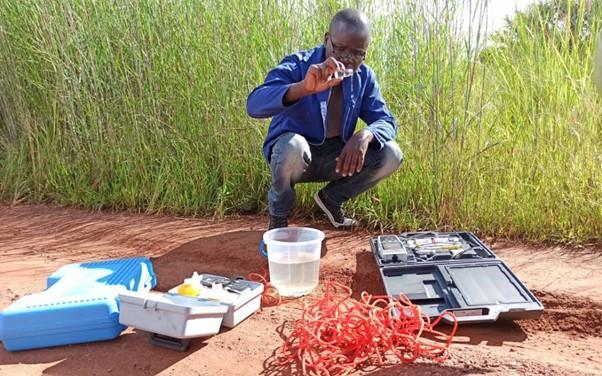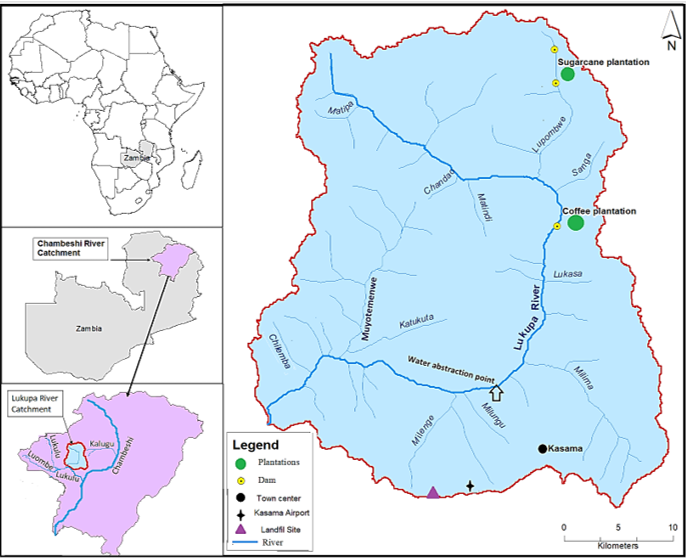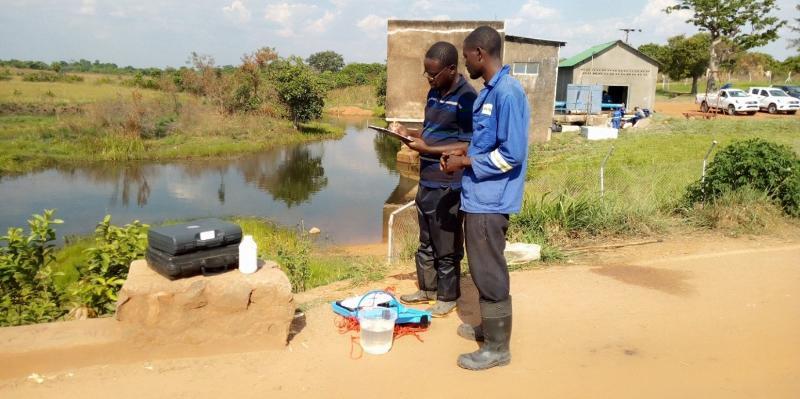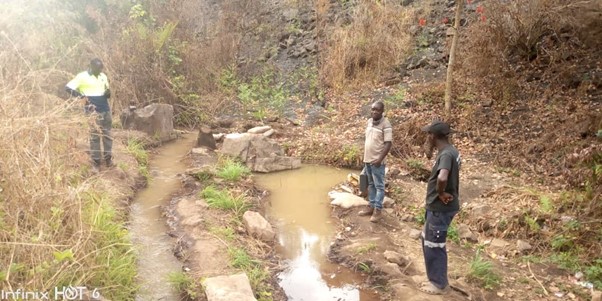MSc project feature: Mathews Mulenga's water quality monitoring programme in Zambia

This is the fourth special news edition featuring some of our hard-working MSc students and their research projects.
On this occasion, we are delighted to present the research project of Mathews Mulenga.
Mathews is a Water Quality Officer at the Water Resources Management Authority (WARMA) in Zambia. He has designed a water quality monitoring programme for the Lukupa River catchment (Northern Province of Zambia, Southern Africa). Mathew’s knowledge and commitment to the project will enable the implementation of the monitoring network in the area very soon. This network includes the sampling points, the variables to sample, the frequency and a detailed financial plan amongst other things.

The location of Lukupa River Catchment
Monitoring of the water quality for the Lukupa River has become essential for the rural communities in the study area, since “they have no access to piped water supply and sanitation services and this has contributed to the outbreaks of waterborne diseases in Kasama town during the rainy seasons” as Mathews has highlighted.
The monitoring programme that he designed combines physico-chemical and biological monitoring to assess the impact of agriculture activities and human settlements on the water quality of the rural catchment of the Lukupa River. One of the biggest challenges (apart from Covid-19, which extensively affected all of our students’ projects), was the total absence of historical water quality data, which would constitute a starting point for the most appropriate design of the monitoring programme. Despite this difficulty Mathews found alternatives to help in the design of the programme. He integrated three different approaches in the design of the monitoring network:
- a targeted approach, based on the objectives of his monitoring programme;
- a stream order hierarchical approach, based on the number of streams that contribute to the Lukupa River; and a
- statistical approach by means of the one-way ANOVA and post-hoc t-tests.
By combining the information obtained, Mathews designed a monitoring network with eight sampling points, reflecting a very good trade-off between representativeness of the area’s water quality and the financial constraints. He even offered a contingency plan to prioritise sampling points during potential periods of financial constraints.
Why is this monitoring programme in the Lukupa River Catchment so important?
As Mathews says this “monitoring programme will help deliver messages about the importance of safeguarding the quality of water in Lukupa River (source of township water supply) through controlled agricultural activities and well-planned human settlements, and this will reduce the disease burden of Kasama town.”

Collecting field data at one of the identified monitoring locations at the water abstraction point for township water supply in Kasama town.
Moreover, “the Lukupa River water quality monitoring programme will benefit the local water resource managers and all the stakeholders by providing them with a reliable source of water quality data and information for decision-making.” “The monitoring programme will also be very useful in providing water quality data needed to check environmental management compliance by the commercial activities taking place in the coffee and sugar estates upstream as required under Zambian laws. The monitoring programme will also provide baseline data for checking environmental management compliance by any other new economic developments that may take place within the Lukupa catchment.”

A field visit to determine access to identified monitoring locations
And also, as Mathews pointed out, “the designed programme will also increase the quantity and quality of data that Zambia is submitting for SDG Indicator 6.3.2 reporting”.
We look forward to seeing this water quality monitoring programme become a reality!
UNEP GEMS/Water Capacity Development Centre
UNEP GEMS/Ionad Forbartha Acmhainneachta Uisce
Contact us
Environmental Research Institute, Ellen Hutchins Building, University College Cork
